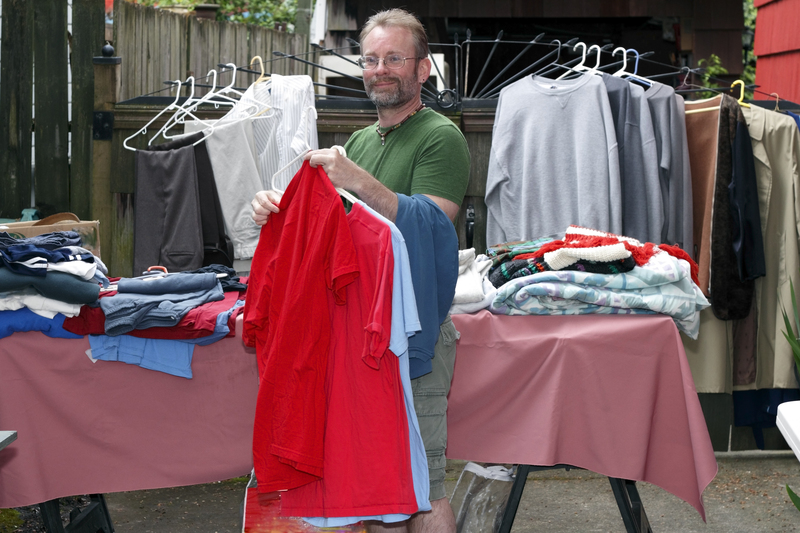How to Cut Costs With Smart Bulky Waste Removal Tips
Getting rid of bulky waste--from old furniture and broken appliances to garden refuse--can often come with a hefty price tag. However, with a few smart bulky waste removal tips, you can efficiently declutter your space while keeping costs low. In this comprehensive guide, we'll cover practical, cost-effective strategies for disposing of large waste items in an environmentally friendly way. Whether you're moving house, renovating, or just clearing out, follow these top tips to save time, money, and stress.
What is Bulky Waste and Why is Removal Expensive?
Bulky waste refers to large items that can't fit in standard wheelie bins. This includes:
- Furniture (sofas, beds, wardrobes)
- Household appliances (fridges, washing machines, ovens)
- Mattresses and rugs
- Large toys and bicycles
- Garden refuse (logs, branches, shed parts)
Removal is expensive because such items are heavy, sometimes hazardous, and require special disposal methods. Councils and commercial collectors factor in:
- Transportation: Larger vehicles and additional manpower
- Disposal fees: Landfill taxes, recycling fees, and environmental levies
- Labour: Bulky waste often needs more than one worker
So, how can you reduce bulky waste removal costs without compromising on convenience or environmental responsibility? Let's explore the smart strategies below.

1. Audit and Sort Your Bulky Waste
Assess What Needs Removal
Start by taking inventory of what needs to go. List all bulky items and categorize them into:
- Recyclables (metal, wood, electronics)
- Donatable items (clean, working furniture or appliances)
- Waste (broken, non-recyclable items)
Benefits of Sorting Bulky Waste
Sorting ensures you don't pay to dispose of items that could be reused or recycled. It's your first step in saving money and the environment.
2. Sell or Donate Usable Items
Turn Waste Into Value
Your "rubbish" might be valuable to someone else. If your bulky items are still in decent condition, consider:
- Selling online (Facebook Marketplace, eBay, Gumtree)
- Donating to charities (British Heart Foundation, local shelters or furniture projects)
- Offering items for free via community groups or Freecycle
Selling or donating helps you avoid disposal costs, reduces landfill waste, and supports your local community. Some charities even offer free collection for large furniture or appliances, which further cuts your costs.
3. Use Local Council Bulky Waste Collection Services
Check Your Entitlements
Local authorities often provide a bulky waste collection service, either free or at a reduced rate for residents. Each council sets its own prices and rules. Typical items accepted include fridges, sofas, beds, and wardrobes.
- Check your council's website for allowances (often 1-2 free collections per year).
- Combine items for collection to maximize value.
- Understand any limits (number of items, types of waste).
Using your council service is usually cheaper than private removal. Always compare the rules and prices before booking.
4. Share or Split Costs With Neighbours
Bulk Up Your Waste... Together!
If you're hiring a skip or arranging a private bulky waste collection, ask neighbours if they have items to dispose of. By pooling resources, you can:
- Share the cost of a skip or removal van
- Negotiate better rates with collectors
- Reduce single-use trip emissions
This is especially effective for flat complexes or terraced streets where multiple households can split costs and cut waste removal bills significantly.
5. Recycle Responsibly for Free
Find Your Nearest Recycling Centre
Most local authorities provide household recycling centres (tip, dump, civic amenity sites) where you can drop off bulky items at no charge. These sites accept a wide range of materials, including:
- Scrap metal
- Large electricals (WEEE items like fridges, microwaves, TVs)
- Wood, garden waste, rigid plastics
- Mattresses and textiles
Before you visit, check:
- What's accepted (bring proof of residence if required)
- Opening hours and vehicle access rules
- Limits on quantity or frequency
By recycling directly, you sidestep collection and landfill fees--the ultimate method for budget bulky waste disposal.
6. Hire a "Man & Van" Service--But Do It Smartly
Compare Quotes and Check Legality
For those who can't transport items themselves, "man & van" rubbish clearance services are a flexible option. But don't simply accept the first quote:
- Shop around: Use at least three providers for quotes.
- Check for a waste carrier licence: Using unlicensed collectors can lead to fly-tipping fines (and liability for you).
- Be clear about what you're disposing of: Prices are based on volume, weight, and waste type.
- Ask if they donate/recycle: Some ethical firms will sort and process your items sustainably, sometimes at lower rates.
Strong negotiating and due diligence can slash bulky waste removal costs while keeping things legal and green.
7. Consider Skip Hire Only When Necessary
Is It Cost-Effective?
Skip hire can be practical for big projects, but it's not always the cheapest bulky waste solution. Skips are charged by size and require a permit if placed on public roads.
- Use only if you have a large volume of mixed waste.
- Get multiple quotes and ask about permit fees.
- Maximize space by breaking down items (disassemble furniture, flatten boxes).
- Share with neighbours if possible.
Otherwise, for single or small numbers of large items, the other tips above are often more cost-effective and efficient for bulk waste disposal.
8. Reduce Future Bulky Waste
Long-Term Smart Bulk Disposal Tips
Cutting costs isn't just about one-off savings; it's also about not generating bulky waste in the first place. Consider:
- Buying quality and durability over "fast furniture" to reduce breakages
- Repairing and upcycling items instead of replacing
- Borrowing or renting for rarely-used large items
- Opting for modular or flat-pack furniture for easier transport and resale
With a little planning, you can save money both now and in the future.
9. Beware of Fly-Tipping and Illegitimate Operators
Protect Yourself and the Environment
Using unlicensed waste removal operators can seem cheaper but comes with risks:
- Prosecution and fines: If your waste is fly-tipped, you can be held responsible.
- Environmental harm: Illegal dumping pollutes communities and wildlife habitats.
- No guarantee of legal or ethical disposal
Always request a waste transfer note or receipt and check the company's waste carrier licence on the Environment Agency's official register.
10. Compare and Combine Methods
Achieve the Best Value for Money
Often, the most economical way to dispose of bulky items is by combining several strategies:
- Sell or donate what you can
- Recycle the rest at a local household waste centre
- Hire council or "man & van" services only for non-donatable, non-recyclable waste
A little advance planning will result in a cheaper, greener, and more satisfying bulky item clear-out.

Frequently Asked Questions About Bulky Waste Removal
- What's the cheapest way to dispose of bulky waste?
Using your local council's collection or taking waste to a council recycling centre yourself is usually cheapest. Avoid private firms unless your council or tip won't take your items. - Can I leave furniture or appliances on the street?
No. Illegal dumping is a criminal offence and you may face fines. Always use authorized collection services. - How can I get rid of items for free?
Donate, use giveaways, or transport them to a council recycling centre. Some charities collect large items for free. - Is it cheaper to use a skip?
Only if you have a large quantity of mixed bulky waste. For just a few big items, council or "man & van" options are usually less expensive. - How do I check if a waste removal service is legit?
Ask for their waste carrier licence number and check it through your country's official environment agency.
Conclusion: Cut Bulky Waste Removal Costs With These Smart Tips
Disposing of bulky waste doesn't have to drain your wallet--or harm the planet. By sorting, selling, donating, recycling, and pooling resources, you can reduce bulky waste removal costs dramatically. Always use licensed, legitimate collectors and consider all your options before booking a service.
- Sort waste to minimize disposal and maximize reuse
- Sell or donate workable items
- Use council and free recycling centres wherever possible
- Pool resources with neighbours for bulk savings
- Check all licences and avoid fly-tippers
_Use these proven strategies to access affordable, responsible, and efficient bulky waste removal--leaving you with a cleaner space and a healthier bottom line._
